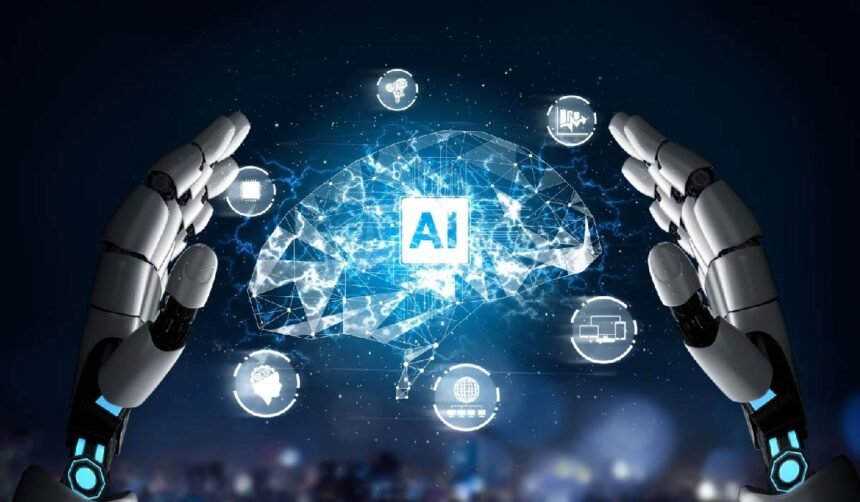Artificial intelligence is no longer a distant innovation on the horizon butis here right now driving the next wave of digital marketing. From predictive analytics and hyper-personalised content to automated media buying and conversational AI, marketing technology is evolving faster than most organisations can adapt.
But there’s no need to panic and certainly no need to rush to use new tools. This evolving area will settle down and the best tools and approaches will become clearer. Sooner, rather than later to be fair, but I do see a lot of unnecessary fear? Perhaps that is too strong a word but you know what I mean.
And while AI has many great opportunities for growth, efficiency and customer insight, it also brings with it a complex landscape of new challenges. It takes time to decide what is the best way forward for your business.
For marketers, the AI era is not just about new tools but about rethinking how we create, measure and sustain meaningful connections with customers. That rethinking can’t be rushed – although neither can you sit back and do nothing!
The Promise and the Paradox of AI in Marketing
AI is transforming digital marketing but as automation improves, the authentic human connection becomes harder to maintain. AI apps cannot look a customer in the eye and build a relationship of trust. That means marketers must walk a fine line between efficiency and empathy so that data-driven decisions (or indeed AI-generated content) doesn’t dilute the emotional resonance that drives brand loyalty.
I spoke to Axion Now, a company that thrives on face-to-face eventsbut also has an e-commerce arm, about some of the challenges of digital marketing in the AI age…
Challenge 1: Data Overload and the Ethics of Insight
AI thrives on data, but with that come the twin challenges of data management and ethical responsibility.
- Volume vs. value: Marketers are drowning in information from CRM systems, social platforms, and web analytics, but struggle to extract meaningful insights.
- Privacy and compliance: Stricter data protection laws (GDPR, CCPA, and emerging AI regulations) require greater transparency in how data is collected, stored and used.
- Bias and fairness: Algorithms can unintentionally amplify bias, skewing ad targeting or content visibility.
In this context, responsible data governance is not just a compliance issue, it’s a cornerstone of customer trust.
Challenge 2: Content Saturation in an AI-Generated World
Generative AI tools can produce marketing copy, images and even video content in seconds. But this floods digital spaces with homogeneous, low-differentiation content.
The result being there is now a new battle for authenticity and originality.
Marketers must move beyond mere content creation to strategic storytellingthat preserve a brand’s distinctive voice. The winners in the AI era will be those who use these tools to amplify human creativity or improve the efficiency of human creativity, not replace it.
It may be difficult to see that right now amongst all the hype and, let’s face it, excitement of using ChatGPT to create content for us. But already it’s easy to spot the AI-generated content if you see enough of it, even without the use of tools to detect it. Perhaps a little worryingly, I am seeing an increase of tools telling me that the content I have personally written is probably AI-generated!!
Challenge 3: Shifting Metrics of Success
Traditional digital marketing KPIs such asrankings, clicks, conversions, no longer capture the full picture in our evolving AI-era. We need new measurements that can track how AI apps affect engagement, retention and sentiment. Whilst there are already tools claiming to do that there is plenty of scepticism about how reliable they are.
We need to know not only what worked but why it worked and that requires transparency in how AI systems operate. We simply don’t have that.
Challenge 4: Skills Gaps and the Human Factor
The AI revolution is redefining what it means to be a digital marketer. At the same time creative professionals may feel displaced by automation. This is ironic given that AI uses creative output to, well… create output. It seems to me that blending human insight with technical skillscould be the way forward.
Challenge 5: The Evolving Role of Trust and Transparency
Consumers are becoming more aware of the influence of AI on what content they see online and what products are recommended. So trust is more important than ever. Just how do all of us – with our marketer hat on or our consumer hat on – know what to trust?
The Way Forward: Human-Led, AI-Powered Marketing
Ultimately, the future of digital marketing is not about choosing between humans and machines but about using both to enhance the other.
AI can process data at scale, predict trendsand optimise performance, but only human marketers can interpret culture, emotion and meaning. The most successful brands in the AI era will combine technological intelligence with human empathy using automation to empower creativity and build trust.
If I come back to read this in 5 years’ time, I hope that is still true.









